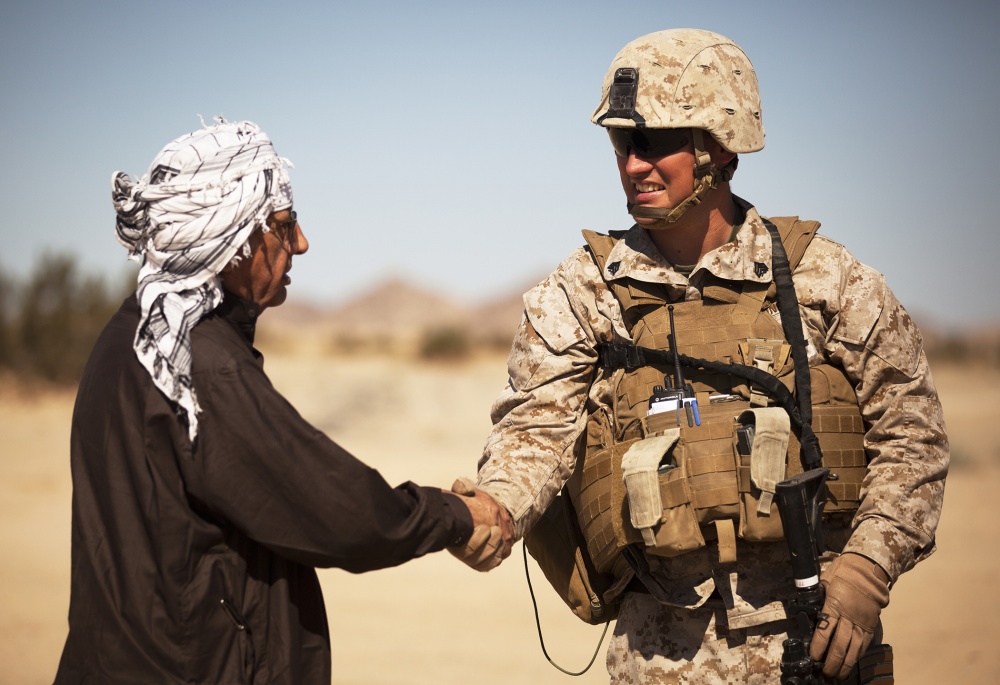How Does a Marine Develop Rapport?
Marines participate in pre-deployment training that includes rapport-building exercises at Camp Lejeune, N.C. For units deploying to Afghanistan to train, advise and assist the Afghan National Army and Police, these exercises give them an opportunity to work with Afghan role players at a simulated forward operating base.
 Photo by Sgt. Lucas Hopkins
Photo by Sgt. Lucas Hopkins
Marines must first learn how to interact positively with their Afghan counterparts to be successful in their respective missions. “They’re practicing social perspective taking, cross-culture communication, and how to employ interpreters,” said Staff Sgt. Brian Stanley, an advisor skills instructor with Marine Corps Security Cooperation Group. “Marines get a lot of training on how to do their jobs… but they don’t get a lot of opportunities to practice using an interpreter and practice building relationships with people from a different culture. This is a perfect opportunity.” Stanley, who has deployed twice in support of Operation Enduring Freedom, says he didn't consider culture part of his planning process in the past. “It would have made my job a lot easier, and probably would have helped me be more successful if I had been aware of what I am now. Culture is a huge piece, and if you don’t consider that, it’s going to make your job a lot harder to do.”
Getting face-to-face interaction with the role players prepares the Marines for the social nuances they must understand before training the Afghans. “This helps to provide us experience before we get there because it lets us garner an understanding of [cultural norms],” says Maj. Michael Young, an advisor with Task Force Southwest. “When we get over there, we’ll have some of the mechanics down, so when we’re in a room with our counterparts, we can focus on cultivating rapport, and also be able to advise and assist them with their military functions.”
“Rapport is the basis for everything we do. Starting with the relationship is very important in the Afghan culture,” said Stanley. “They have to build that relationship in order to accomplish anything.”
Read More:
Task Force Southwest Marines enhance rapport-building skills
Coalition forces celebrate Eid with Afghan forces
RCT-5 joins ANA to break monthlong fast
Header Image Credits:
************
Want to learn more about culture and cultural training in the Department of Defense (DoD)? CultureReady.org is here to help! We are a public resource to discover specific information about various cultures and also training on cross cultural competence or general concepts that affect all cultures. If you are in the military, or support the military, or are thinking of joining the military, we welcome you to check it out! Some of our Department of Defense (DoD) oriented material is restricted to government ID holders, or password protected, but our goal is to provide you with some training that is easy to access. Cultural competence is important to military missions, the Department of Defense (DoD), and for all those who support those missions. Learning about specific cultures will help you accomplish challenging tasks in a culturally complex environment. Being ready for any cultural challenge in an important aspect of military readiness. For more information on culture readiness and training, be sure to check back to CultureReady.org
